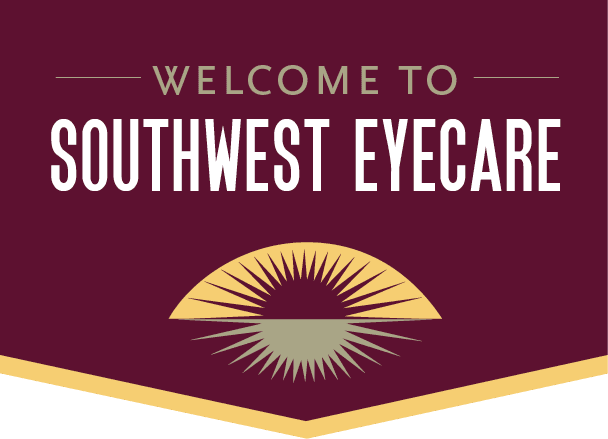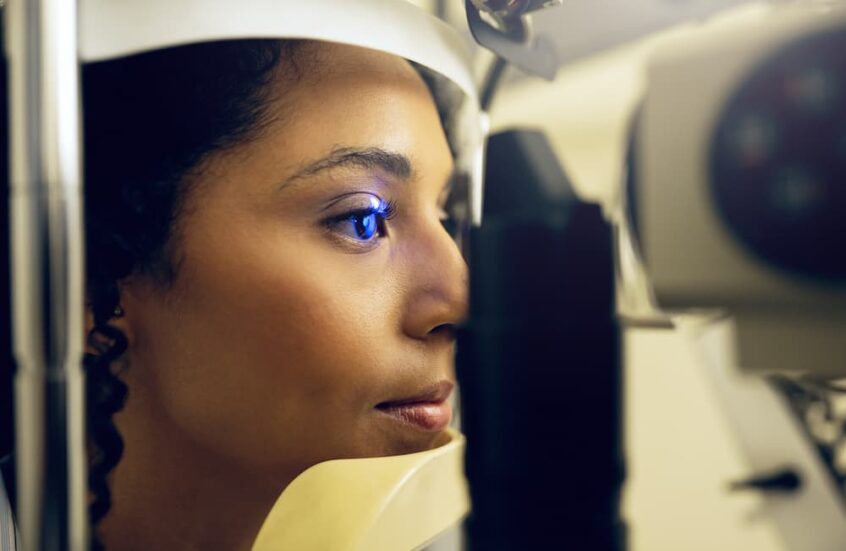Diabetes affects much more than blood sugar levels—it can silently harm one of your most precious senses: your eyesight. It is important to understand why annual retinal exams are important, what to expect, and how our expert team of physicians and staff at Southwest Eyecare, a full-service eye care center, stands ready to protect the New Mexico community’s vibrant visuals.
The Critical Importance of Annual Diabetic Eye Exams
Diabetes can damage the small blood vessels in the retina, leading to a condition known as diabetic retinopathy. Over time, poorly controlled blood sugar can cause those vessels to leak or close off entirely, and in more advanced stages, abnormal new blood vessels may form. Because the retina is essential for converting light into the images your brain interprets, damage here can cause serious vision loss.
The troubling part? In its early stages, diabetic retinopathy often produces no noticeable symptoms. Many people realize nothing is wrong until damage becomes severe. That’s why routine screenings are so important—the earlier a problem is found, the more easily it can be treated.
Individuals with diabetes have a risk of blindness that is 25 times higher than people without, according to the Centers for Disease Control. Yet, studies show that 60% of people with diabetes do not get yearly dilated eye exams, placing their vision at preventable risk.
Besides retinopathy, a diabetic eye exam can detect macular edema, cataracts, and even increased risk of glaucoma—all of which may be more common or more severe in people with diabetes. Catching any of these early can make all the difference in preserving vision.
What to Expect During a Diabetic Retinal Exam
So, you might wonder, what is a diabetic eye exam, and how does it differ from a traditional test? Unlike a typical exam, a diabetic retinal exam is a comprehensive, medical-grade evaluation performed by an ophthalmologist. It goes far beyond checking whether you need glasses.
Here’s a general overview of the process:
- Pupil Dilation: The ophthalmologist will use eye drops to dilate (widen) your pupils. This allows a clearer, broader view of the retina and the back of the eye.
- Retinal Examination: With specialized lenses, cameras, and imaging devices, the doctor inspects the retina, macula, and blood vessels. They look for signs of leakage, swelling, microaneurysms, new vessel growth, or scarring.
- Interpretation & Grading: The ophthalmologist assesses how far any damage has progressed—moderate, or severe—and whether adjacent structures (like the macula) are affected.
- Recommendations & Follow-up: Based on the findings, they’ll recommend follow-up intervals or treatment. Because ophthalmologists use advanced tools and interpret subtle findings, this exam is far more detailed than a standard vision check.
This is not a basic screening for glasses prescriptions—it’s a deep dive into the health of your retina, intended to catch disease before symptoms emerge.
Advanced Care and Treatment at Southwest Eyecare
If your exam detects the onset or any damage, our knowledgeable team at Southwest Eyecare is fully equipped to intervene. Using advanced, minimally invasive technology, we provide treatments such as laser therapy, injections, or microsurgical interventions to preserve or restore vision. Our surgical prowess—demonstrated in cataract procedures and vision-correcting surgeries like LASIK—underscores our commitment to state-of-the-art care.
While we do not conduct routine eye exams, our specialized expertise in ocular diseases makes us the preferred choice for individuals who suspect a problem, experience discomfort, or require immediate intervention.
Schedule Your Comprehensive Diabetic Examination with Our Leading Eye Care Specialists
Your vision deserves more than wait-and-see. With diabetes, early detection is your best defense. Annual retinal exams can catch silent damage before it’s too late. If you have diabetes, make your eye health a part of your yearly routine.
Contact Southwest Eyecare to schedule a comprehensive diabetic retinal eye exam and take control of your vision’s future. Let us protect your sight—today, tomorrow, always.
Image credit: // Shutterstock // PeopleImages

